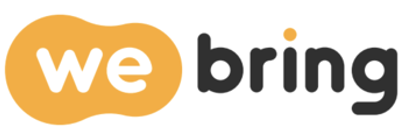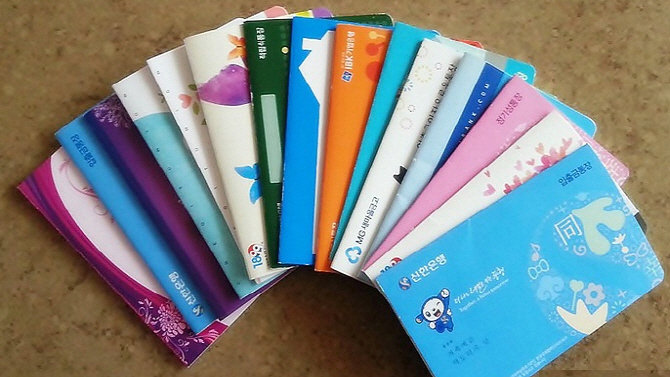If you’re planning to stay in South Korea for an extended period, you’ll likely need to handle several financial matters such as paying a housing deposit, receiving salary payments, paying utility bills, or sending money overseas. Upon arrival, many foreigners ask themselves, “Can I easily open a bank account in Korea?” or “Which bank is best for foreigners?” Fortunately, South Korea is gradually expanding its banking services for foreign residents, making it relatively straightforward to open an account as long as you have the necessary documents.
This article takes a detailed look at foreign bank account Korea and what to keep in mind during the process. Even if you don’t have a Korean resident registration card, you can still access banking services with your passport and alien registration card. So instead of worrying, a calm and thorough preparation will go a long way.
Identification Documents: Alien Registration Card Is Key
To open a bank account, you must present documents that verify your identity. While Korean citizens use a resident registration card or driver’s license, foreigners primarily rely on their Alien Registration Card (ARC). If you’re staying long-term, you’re typically required to apply for an ARC within 90 days of arrival. Once issued, the ARC is widely accepted by banks as valid identification.
If you need banking services before receiving your ARC, some banks may allow you to open a basic account with your passport and proof of temporary residency (e.g., a housing confirmation document). However, these accounts often come with limited features, so it’s much more convenient in the long run to wait until you have your ARC before opening a full-service account.
Choosing a Bank: Accessibility and Service Comparison
In Korea, major banks such as KB Kookmin Bank, Shinhan Bank, Woori Bank, Hana Bank, and NongHyup offer a wide range of services. Online banks like KakaoBank and K-Bank are also gaining popularity. Choosing a bank with convenient branch locations or ATMs near your residence will simplify everyday transactions. Some banks provide foreigner-dedicated counters or English-language support, which is especially helpful if you’re not confident in Korean.
Online-only banks are particularly attractive for their easy-to-use mobile apps and low fees. They allow you to open and verify accounts without visiting a branch. However, identity verification can be more complicated, and some systems may not fully support foreign ID registration yet. Weigh your options based on convenience and available services before choosing.

Account Opening Procedure: ID, Contact Number, and Address
When you visit a bank and say you’d like to open an account, the banker will first ask for identification. Bringing both your Alien Registration Card and passport will make the identity verification smoother. You’ll also need to provide a local phone number and a residential address in Korea. Due to recent anti-money laundering regulations, you may also be asked to state your account’s intended use — for instance, “salary deposit” or “personal living expenses.”
Once approved, you’ll receive a bankbook and a debit (check) card. If you’re interested in digital banking, you can also apply for internet and mobile banking services at this point. Downloading the bank’s app will allow you to check your balance and make transfers on the go. Note that some banks do not issue debit cards on the spot, so you may need to wait a few days to receive it by mail.
Be Aware of ATM, Transfer, and Remittance Fees
Just because you’ve opened an account doesn’t mean all services are free. Korean banks often charge fees depending on the time of day for ATM withdrawals or when transferring to other banks. However, some of these fees can be waived when you use the bank’s debit card, or reduced through internet and mobile banking — though the rules can be complicated.
Some banks offer increased fee exemptions if your account is designated for salary deposits or if you maintain a certain minimum balance. It’s a good idea to ask the bank representative about fee waiver conditions when opening your account. Online banks typically charge little to no transfer fees, making them a good choice for those who send money frequently.
Foreign Exchange and Foreign Currency Accounts
As a foreigner, you may often need to deposit or withdraw foreign currencies like your home country’s currency, U.S. dollars, or euros. Korean banks provide currency exchange services, or you can maintain a “foreign currency savings account.” This allows you to deposit, hold, and withdraw foreign currencies without converting them into Korean won. You can potentially take advantage of favorable exchange rates during volatile periods to minimize losses or gain profits.
Some banks offer exchange rate discounts or promotional coupons, granting preferential rates of up to 50-90%, which significantly lowers transaction costs. Just present your passport, bankbook, or ID at the exchange counter. If you’re exchanging a large amount, it’s wise to make a reservation in advance for better rates and service.
Security Cards, OTP, and Mobile Authentication
Korean banks use a fairly strict security system. You may need to use a security card or a one-time password (OTP) generator when transferring money. Recently, banks have introduced mobile app features like fingerprint or facial recognition, but multiple identity verifications are often required during the initial setup.
A security card is a printed sheet with 30-50 pairs of numbers, and you’ll be asked to enter specific codes during transactions. An OTP device can be purchased separately, or you can install a mobile OTP on your smartphone. Though these procedures may feel inconvenient for foreigners, Korea places great importance on financial security. Following the setup steps carefully will make the process easier.
Mobile Payments and Pay Services
In Korea, mobile payment and transfer services like “KakaoPay,” “NaverPay,” and “Toss” are widely used. By installing these apps and linking them to your bank account or debit card, you can pay via QR codes or send money using phone numbers. It’s entirely possible to live in Korea with little to no cash use.
Foreigners can use these services once their bank account is set up. However, you may be required to verify your identity using a Korean mobile phone number. Using a prepaid or budget carrier number may pose limitations, so it’s better to obtain a number registered with a mainstream telecom company. Once the service is activated, you’ll be able to make easy payments at convenience stores, in taxis, or when shopping online.
Case Study: How a French National Opened a Bank Account
Mr. S, from France, began his life in Korea after getting hired at an IT company in Seoul. Initially worried about how he’d receive his salary, he found it easy to open an account after getting his Alien Registration Card. When he visited the bank, the staff recommended a “salary account package,” which included a debit card, internet banking, and mobile OTP setup all at once.
Though initially overwhelmed by the complex fee structures, he soon got the hang of it by checking transaction histories and fee details in the bank’s app. He found online currency exchange especially convenient. Mr. S says, “The Korean banking system is highly digitized and secure, which makes it safer and quicker than I expected. Though the language was a slight barrier, the staff were kind and helpful.”
Conclusion: Foreign Bank Account Korea
If you’re going to live in Korea long-term, you’ll inevitably need to manage your finances. Core daily activities like salary deposits, utility payments, and phone bills all rely on having a bank account or mobile banking app. Therefore, it’s recommended that foreigners prepare their ARC in advance and choose a bank that meets their specific needs.
Once your account is set up, learning about fee structures, exchange services, and security procedures will make daily life smoother. Since digital payment and remittance services are growing rapidly in Korea, you can live almost cash-free by making good use of these mobile features. While the process may seem tedious at first, you might be surprised at how convenient Korea’s financial system becomes once you’re familiar with it.
Ultimately, with the right preparation and access to information, banking in Korea is not a daunting task for foreigners. Begin managing your finances systematically by opening an account, and take advantage of the various banking products and digital services available. A stable and efficient financial infrastructure will enhance both the safety and richness of your life in Korea.


WeBring Service : Provides personalized services to foreigners living in Korea
Exclusive offer: Introducing foreign car rental in Korea, WeBring-SoCar

